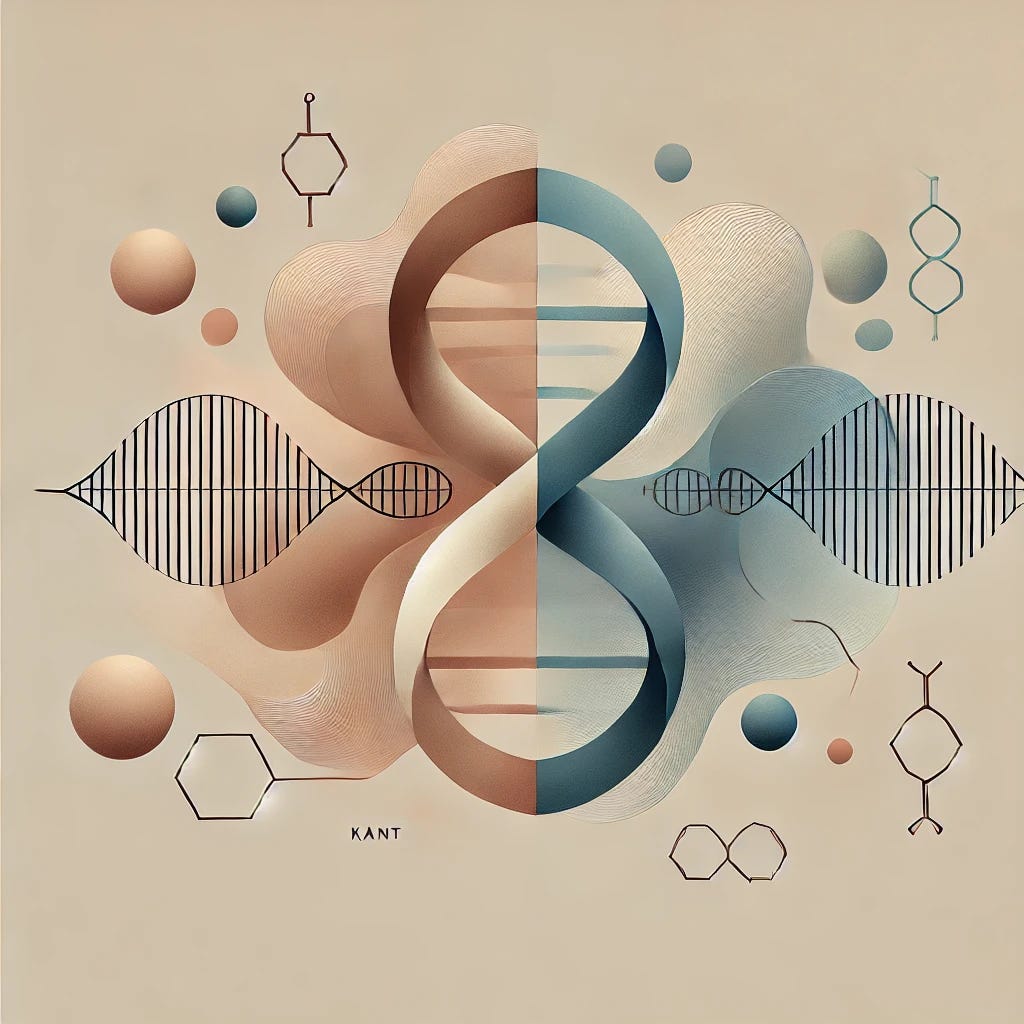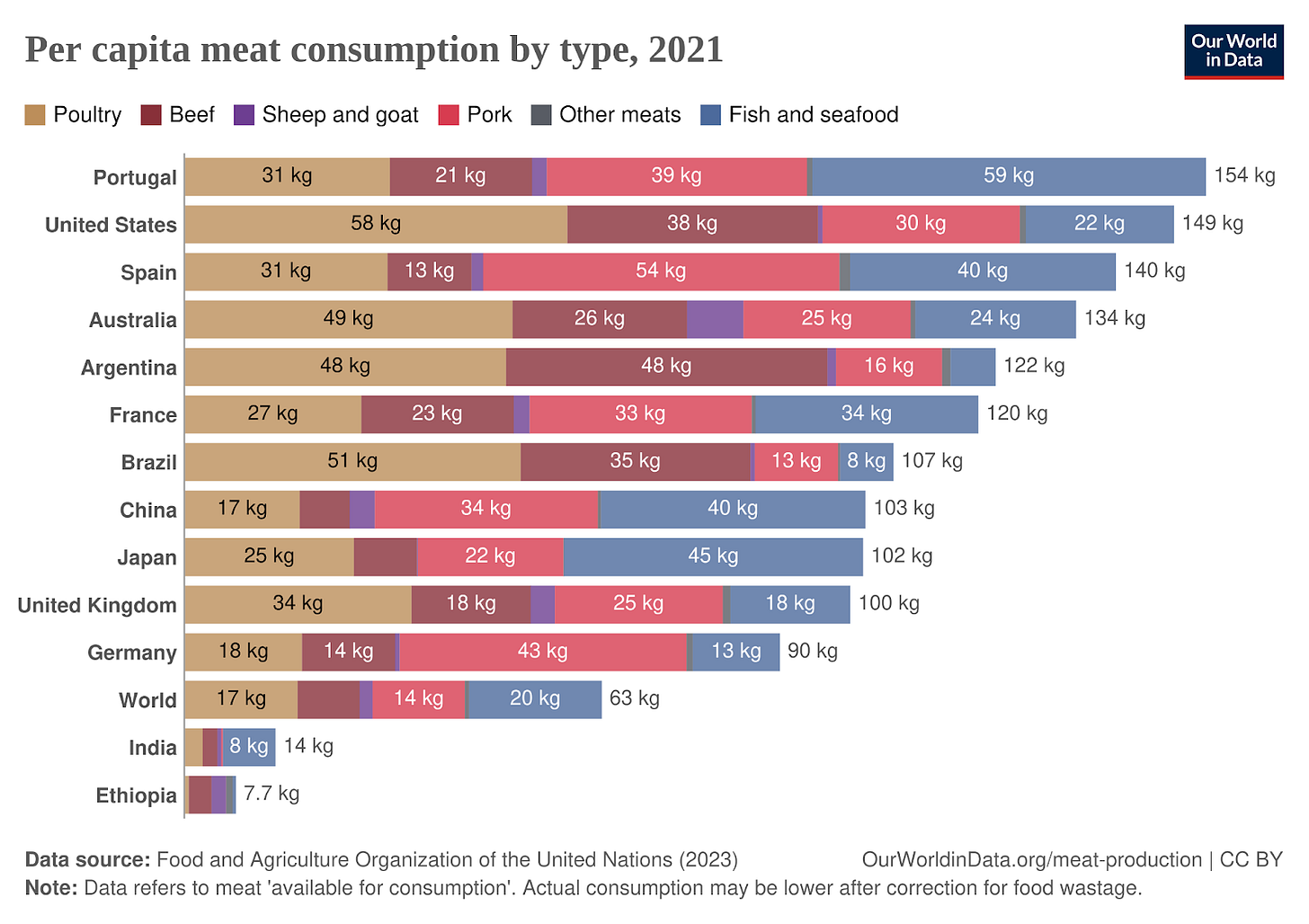Kant, The Categorical Imperatives and Alternative Proteins
Land where we might on questions of Philosophy, Technology provides ways for us to have our cake and eat it. Advancements in Biotechnology will fundamentally change the way we produce our food.
When Covid washed over the planet back in 2020, many of us panicked and the thin veneer of civility that holds our societies together started to crack. One such crack laid bare the compulsive urge to hoard prized consumer goods such as the highly coveted toilet paper.
Whether we were panic buying, hoarding or stockpiling during the dark age of Covid, most of us frowned upon that behaviour. The issue of course was that hoarding toilet paper led to shortages and scarcity for others, not to mention dirty behinds: an objectively unfair outcome.
The majority of us tend to go about our daily lives with some guiding principles and core values that keep us on the straight and narrow. One of these principles could broadly be described as avoiding taking actions that negatively impact others. Of course this isn’t always possible and the impacts of our actions often aren’t evident but, given a choice, we try to avoid causing harm.
An extension of this principle is Immanuel Kant’s Categorical Imperatives. For the German philosopher Categorical Imperatives were moral laws that we should all follow, regardless of “desires or extenuating circumstances”. An unconditional moral obligation if you will. One of them in particular is known as the Universalisability Principle and it states the following: “act only in accordance with that maxim through which you can at the same time will that it become a universal law.”
Translation: you should do things only if it would be fine for everyone to do so.
According to Kant, If you perform an action, then everyone else should also be able to do it too. If they can’t, or them doing so leads to an impossible or untenable situation then it’s immoral. Indeed, putting your needs ahead of others’ sets a dangerous precedent for us all and for the planet. In fact, you could probably attribute many of the challenges we now face to the rise of individualism and egotism.
Not many philosophical questions begin like this but, consider for a moment dog poop. Imagine your neighbourhood if, overnight, every dog owner decided to stop picking up after their dog. (I know what you’re thinking, already too many don’t). The scaling up of this antisocial behaviour would rapidly lead to an untenable situation. The parks and pavements would be covered and we would need to take drastic action. Thankfully this is not the case but the point is some of us can behave immorally only because the majority of us do not.
Take private jets, a common flashpoint. A handful of people in a private jet emit as much pollutant as the 440 passengers flying on a Boeing 777. Only 0.0008% of us are able to use private jets, but what if all 8 billion of us zipped around the globe in them? We would blow past 500 ppm before you could say “whizzbang”. And we all know what that leads to. The scaling up of this action leads to an impossible situation and as a result would be deemed immoral by Kant. He would likely come to the same conclusion over SUVs, both on the pollutant point and the safety angle.
What about if we all ate meat? Unlike flying a private jet, most of us do. But much like flying a private jet it is terrible for the environment.
What also differs is how much we each consume. Some countries such as Portugal, Spain and the USA, are, to refer to the pandemic, the toilet paper hogs, clearing the shelves and building fortresses with them. Whilst countries such as India behave like restrained and considerate shoppers. Eating like them could mean restoring razed rainforests, giving birth to new ones, reducing greenhouse gas emissions along with a multitude of other benefits to the planet. According to the Lancet the fair share of meat per person sits at 98g of beef and 203g of poultry a week. This is a little over the consumption of the average Indian. To put this in context, the average American eats 154kg/ 52 = 2.9kg a week: about ten times the “fair share”. In the meantime 150 million children suffer from long-term hunger that impairs their growth and development. We don’t have a food supply issue, we have a food inequality issue.
Once again, the reason the hoarders can eat so much is because the vast majority eat so little. But as countries pull out of poverty their citizens want to eat like America, and Spain and Portugal, and why shouldn’t they? Unfortunately, the consequence is that global meat consumption is expected to increase by 30% by 2050 and, as one of the most destructive industries on the planet, this will lead to an impossible outcome. So then, according to Kant, and before even considering the question of animal welfare, eating anything over the “fair share” of meat would be deemed immoral.
But Kant’s Categorical Imperative can be a little rigid and absolute. Some broader ethical frameworks such as Utilitarianism which seeks to maximise overall well-being and minimise suffering may reach similar conclusions. In its current form, meat production relies on factory farming and mass production which causes significant suffering to trillions of animals and consequential environmental destruction.
Virtue Ethics, on the other hand, is rooted in Aristotle’s work and emphasises the development of moral character and the pursuit of a “flourishing life”. The ethics of meat consumption would be evaluated based on whether it aligns with virtuous qualities like compassion, responsibility, and justice. In light of the harm inflicted by industrial farming a pursuit of virtue might involve reducing or avoiding meat consumption to cultivate these virtues.
Land where we might on these questions of Philosophy, there are ways for us to have our cake and eat it. There are solutions to enjoying meat without the crippling moral dilemmas and existential philosophical interrogations.
Advancements in Biotechnology have spawned a number of incredibly exciting technologies that are able to produce flesh without the slaughter, milk without the cow and meat without the huge environmental impacts and abhorrent cruelty. These technologies, described jointly as Cellular Agriculture to evoke the idea that we’ve progressed past animals and can now harness microbes to produce our food, stand to completely disrupt our food system. They offer the opportunity for decentralised, plentiful, nutritious and sustainable foods for us all.
Precision fermentation, arguably the most advanced of these technologies, is likely to overhaul the Dairy Industry by the next decade. In fact, the coming together of a number of disruptive technologies: cheap localised energy through Solar and Battery storage, labour output optimisation through widely accessible and increasingly powerful AI, and food production at a fraction of the conventional footprint is set to completely reorganise our societal paradigm as we know it within the next 20 years. We may well be living the most important times in the history of Earth.
So we have choices:
Do nothing and Kant calls you immoral. Ouch.
Abstain as per the logical conclusion of Kant’s categorical imperative (and others), scale down meat consumption and go primarily plant-based or
Help push the transition to a more just and sustainable food system so that we can all eat meat without comprising our planet for future generations.
Sources -






Thank you for writing this article, it makes me feel hopeful for the future.